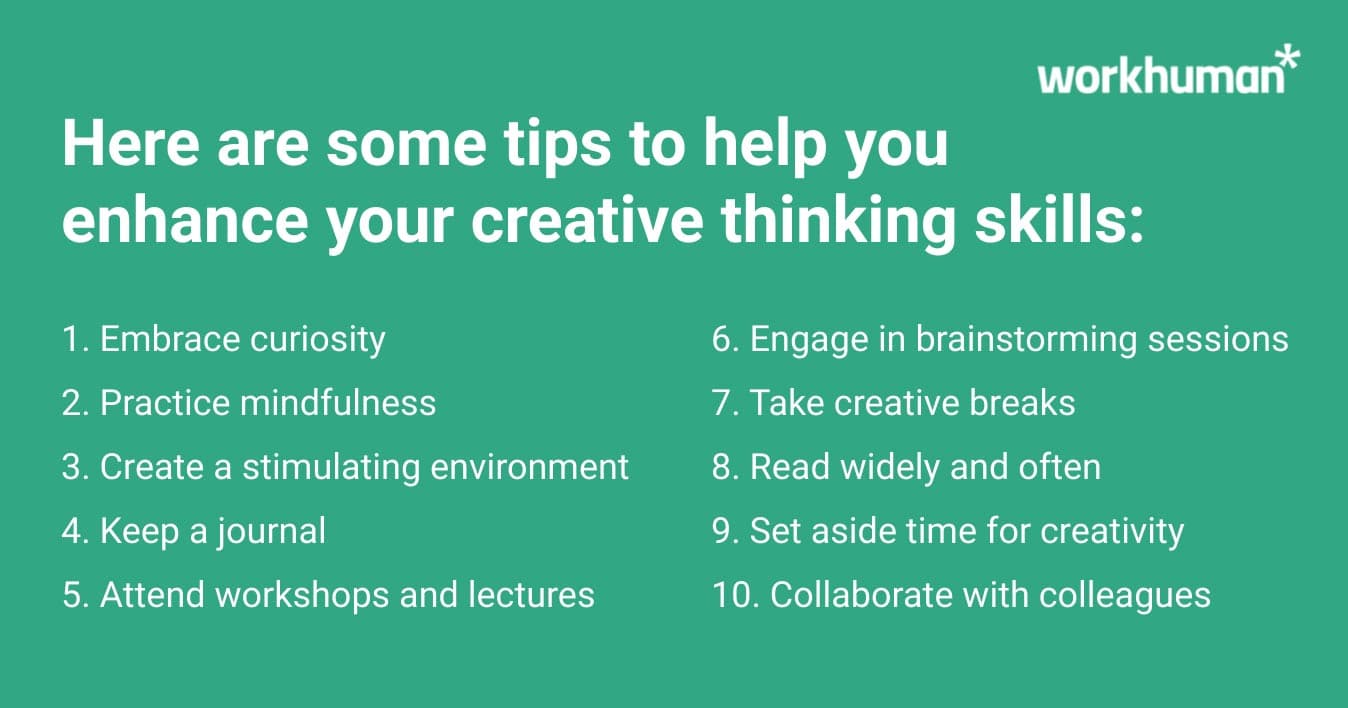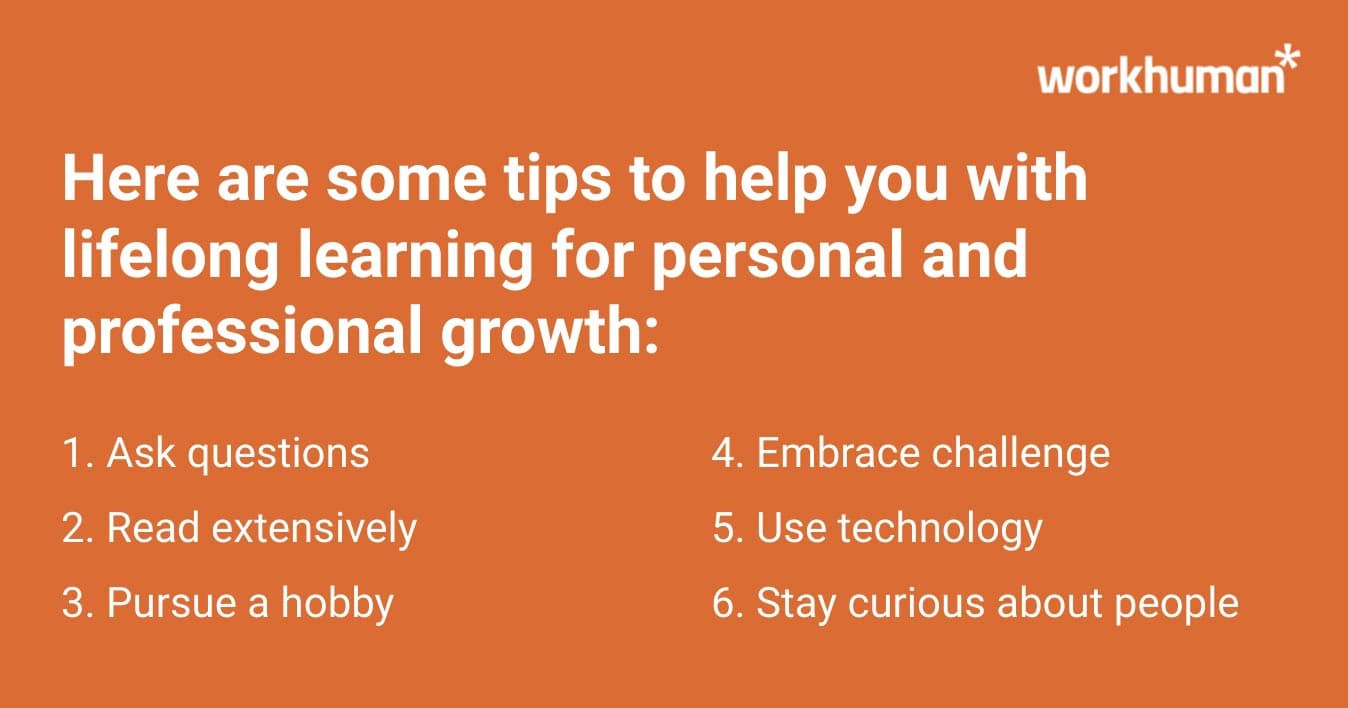Essential Skills for Success in a Changing World

In today's dynamic world, desirable workplace skills constantly evolve to keep up with technological advances and cultural shifts. In fact, 44% of workers' core skills are expected to change in the next five years.
Expanding and growing your skillset paves the way to an increased salary, better benefits, and career changes that can increase your wellbeing by easing financial burdens and reducing stress.
Expanding and growing your job related skills paves the way to an increased salary, better benefits, and career changes that can increase your wellbeing by easing financial burdens and reducing stress.
Read on to learn more about the skills for success that are growing in importance, and discover actionable tips to develop each one.
Five most helpful workplace skills for success:
1) Creative thinking
At its core, creative thinking in the workplace means approaching daily tasks, processes, and challenges with a fresh and open perspective. Any professional in every level, role, or industry can apply creative thinking to their work by fostering a creative mindset, seeking inspiration, and embracing experimentation.
Tips to improve creative thinking skills
- Embrace new experiences both in and out of the office. Travel, sign up for a class, or take a different route home – exposure to new stimuli can spark new ideas and prime your brain for creative thinking during the workday.
- Find a colleague willing to partner up for regular brainstorming sessions. Bouncing ideas off one another flexes your creativity, while talking things through boosts your communication skills.
- Stop and think before going through the usual motions to assess if there's a different way to approach a task, process, or problem. Awareness and reflection will help you solve problems in new ways and develop win-win solutions.

2) Analytical thinking
Analytical thinking involves systematically breaking down complex problems or data into smaller components to discern patterns, relationships, and principles. Analytical thinking continues to be the top core skill valued by employers, with seven out of 10 companies considering it essential, as highlighted in the Future of Jobs Report 2025Opens in a new tab by the World Economic Forum.
This is because it's a work task that is least likely to be automated by machine learning or AI.
Tips to improve analytical thinking skills
- Get comfortable with data. Familiarize yourself with beginner data analysis tools like pivot tables and basic statistics. Turn to free online courses and tutorials to fill your knowledge gaps. To keep your mind fresh, regularly analyze data to identify trends and areas of improvement.
- Question the status quo. Regularly asking "Why?" and "What evidence supports this decision?" will help sharpen your observation skills and solve problems.
- Practice active listening to seek out missing information and underlying assumptions. One simple way to do this is by clarifying what the person has said after they finish speaking. Phrases like "What I heard was...," "If I understood correctly...," and "It sounds like..." are great ways to uncover hidden points and tap into analytical thinking.
See also: What is a Skills Profile and Why Do They Matter?
3) Technological literacy
Technological literacy refers to the ability to use, understand, and manage technology safely, effectively, and responsibly. Technology is constantly evolving; no industry, role, or job is unaffected by these advances. No matter who you are or what you do, building skills that increase technological literacy will help you progress in your career.
Tips to improve technological literacy skills
- Tap into the resources and employee growth and development ideas your Human Resources department offers. Your organization might offer advanced education credits, micro-learning opportunities, mentorship programs, webinars, and more that can help get you up to speed and ahead of the game.
- Keep your finger on the pulse to stay current. Subscribe to newsletters and follow tech news outlets that pertain to your industry or role. These resources contain valuable information and guidance on where to access online courses and tutorials that are free or affordable.
- Don't be afraid to practice and experiment. Most software programs have built-in tutorials, documentation, or demo versions that allow you to try things in a safe environment before applying them to your work tasks.
4) Curiosity and lifelong learning
The rise of AI and our increasing dependency on machines puts these two human skills in heavy demand. An innate curiosity fosters innovation; a desire to learn and grow ensures up-skilling and reskilling at the workplace.
Tips to foster curiosity and life-long learning
- Slow down and take stock of what's happening around you. Building your curiosity muscle can be boiled down to noticing details, changes, or potential issues. But don't stop there: question what you're observing, and get comfortable asking yourself the 5 Ws ("who, what, where, when, and why?") to help develop curiosity.
- Find sustainable and efficient ways to incorporate learning into your everyday schedule. It might look like listening to a podcast, watching a YouTube video, reading an article or book, or playing an educational game like Duolingo.
- Choose a topic that interests you – it doesn't need to apply to your work. Your newfound curiosity and interest will translate into how you approach work challenges and skill development.
- Be open to constructive feedback. Ask your colleagues, manager, or mentor for their thoughts on your strengths and weaknesses. While this might be intimidating, receiving feedback not only helps build curiosity but it will also provides you with inspiration for areas of growth to focus on.
Giving and receiving feedback isn't easy, but it is incredibly impactful when done thoughtfully.
Use these 9 Tips for Giving Feedback (Without the Stress) to get started.

5) Resilience, flexibility, and agility
Developing these soft skills will help support skills like creative thinking and life-long learning. Cultivating resiliency, flexibility, and agility promotes quick adaptation to change, effective problem-solving, collaboration, and continuous learning.
Tips to foster resilience, flexibility, and agility
- Embrace a sense of humor. Keeping things light can help put challenges or stressful situations into perspective and can help you move on from a taxing day or situation with increased ease.
- Practice gratitude by writing down reasons you are thankful, try meditation, or incorporate yoga into your wellness routine. These habits help develop resilience by ensuring you are present in the moment and maintaining a positive attitude.
- Anticipate change and get ahead of industry trends or changes to your work by following industry newsletters and keeping up with the news. Use this information to seek out new challenges or stretch assignments. Learning adaptability and how to accept change works your flexibility and agility muscles.
Conclusion
There isn't just one "most important skill" that takes your career to the next level. Preparing your skills for success is a journey throughout your career. Conducting a regular employee skills inventory, learning how to anticipate change, adapt, find solutions, and develop new skills that are on the rise will lead to success.
About the author
Alicyn Zall
Alicyn Zall is a writer dedicated to creating a more equitable and fulfilling workplace. With a focus on actionable, data-driven insights, her work empowers individuals and organizations to foster positive change. In addition to her contribution at Workhuman, Alicyn has served as an editor at Harvard Business Review where she developed books and articles about mental health and the future of work.